So a lot different factors have prompted me to start this topic. The first is that I've been experimenting a lot with different methods of making better Anki Decks, and I've been really excited by the initial results. The second factor is that I've also recently read Gabriel Wyner's book Fluent Forever, which proposes a method heavily reliant on SRS. I don't follow his methods 100% and I'm not interested in discussing all the methods in his book, but none the less it brings up a lot useful ideas for improving Anki decks, and I don't believe all of them have been discussed on this forum yet. The third factor is that over the last month or so I've noticed several discussions on the usefulness of anki, and it struck me that a lot of people seem to dismiss anki and SRS as a whole based on experiences with boring decks. But there's so much more that can be done with it, and I think some are too hastily dismissing what I perceive to be a very powerful tool for language learning. So instead of the usual discussion of how important/useful is anki, I'd like to start a new discussion focused on making better more powerful anki decks.
What are Anki and SRS? Re-framing the discussion
I think when a lot of people think SRS they think, they think a deck full of 5000 words, you translate a word in L2->L1, then you translate the word to L1->L2, and you end up in this soul sucking routine of painful memorization each day. Maybe if you're lucky you have pictures and sound. But there are so many more things you can do with Anki and SRS besides this.
I think it's important not to associate one specific type of content or method of study too strongly with Anki. To me Anki is just a way of presenting and scheduling content, any content. You are given 2 chunks of content, one his hidden til you tap the screen, and then you decide how much time you want to pass before you see that content again. That's all it is, how much, or what kind of information you're quizzed on with each card is entirely up to you and your purposes. Translate a whole sentence? Fill in the appropriate verb ending? Just a friendly reminder? All appropriate uses of anki cards. Really the only kind of content that doesn't work in Anki is really long continuous content like books, because things need to get broken up into small chunks and then randomized.
But at its best, Anki is like the best formatted textbook you could possibly imagine. It can quiz you on content in a hundred different ways, and you automatically review content you're struggling with more often, instead of having to review an entire lesson just to pick up a bit of vocab or a small grammar detail. And there's no lines between beginner, intermediate, or advanced, Anki keeps growing with you.
Tips for making better Anki Decks
There isn't one ideal Anki deck, and because building a deck can take a long time it's always a question of what decks/resources are available and is there a faster way to learn something through Anki. So rather than prescribing one single method of creating an ideal Anki deck, I'd rather this thread just be a giant collection of advice and people can mix and match whatever best suits their materials and needs. So with that said I'll just begin throwing out tips, and I hope everyone else will to.
Creating Cards As Learning - This was probably the biggest revelation for me from Gabriel Wyner's book. And it's actually a very logical justification for spending lots of time creating an anki deck. The concept is basically that the more connections you make with a specific word or piece of information in your brain, the easier it will stick. So the more you think about creating a card and more of that thought process you put into the card the easier it will be to remember. His main recommendation is google image searching the word itself (not an L1 translation) and spending 10-20 seconds trying to notice from the images how its usage might differ from the L1 translation. By putting more thought into the image(s) you select when making the card, you're also increasing you're ability to recall this thought process and the word itself whenever you review the card. Essentially you'll probably learn the word or grammar point fairly well when creating the card and then Anki just helps push it into long term memory. The same thing can work with grammar points or anything you're struggling with learning.
Multiple contexts for the same content in a deck - I first noticed this when making a deck out of FSI buildups, and seriously it works wonders. So many decks seem like 1 card per 1 piece of content, but SRS repetition + multiple contexts ridiculously amplifies your ability to retain things. Add more sentences with similar words, add different forms of the same word, add compound words with familiar roots, all these will make related cards easier and take a lot of pressure off reviewing individual cards. Some people have said if you can't remember a card, just delete it. I would say if you can't remember a card but really want to remember it, add a new card with similar content in a different context, trust me they'll both become your easiest cards in a blink. Your deck shouldn't be just words, or just sentences, but words and sentences and exercises and anything else you'd want in a normal textbook.
Audio Audio Audio! - Seriously, audio cards waaaaaay increase the effectiveness of SRS. I've wasted so much time thinking audio was a nice extra but not that important. There's this awesome thing your brain does when you've heard the exact same audio pronunciation of a word or sentence over and over again, in that it gets burned in forever, seriously its magic. When I have cards without audio it's quite common for me to suddenly forget a card that anki previously marked as being "matured" or being in my long term memory. But with audio, this happens much much less. Its totally worth the time to track down audio for your deck. The simplest way is to search words on Forvo, but developing some skill with Audacity's audio label tools, and mining audio from your courses can also be a great thing. And of course there's always Subs2SRS.
Quiz yourself in different ways, create hints - Basically if you can't remember a certain card, instead of just trying harder to cram it into your brain, figure out different ways to quiz yourself on it. Make easier and harder versions of cards, where sometimes you get hints, and sometimes you don't and ease the transition of learning it. For a long time my Cantonese decks where nothing but "here's a character, what does it mean?" and there were characters I always mixed up because they looked similar or I was keying in on the same specific feature for differentiating them from other characters. Then I created cards specifically quizzing me on telling the two characters apart, and not only did this help me differentiate the two characters, but I started seeing a lot more details in characters and being able to tell all kind of similar characters apart without specifically quizzing myself on them.
Tools for creating decks faster
This is a bit of a tricky section, because making good Anki card requires one to be a bit tech savy, and to be willing to google how to do more advanced things and figure them out until they're becoming automatic. This is probably the biggest barrier between using anki really well I don't really know how to teach all this stuff in a section, but here are just some ideas for people to explore more themselves.
Excel - Basically if you paste a bunch of stuff into excel, you can export it as a text document separated by tabs, then convert it to UTF-8 format with something like notepad and then import them into anki. These tend to be how those bland 5000 word decks get made, but you can also use this as a baseline and then work on customizing and personalizing the cards.
Subs2SRS - Create cards out of movie dialogs with audio and screenshots automatically. This is a super powerful too, but you may want to delete and modify the end results a bit.
I'll try and expand this section in the future, if anyone has links to useful tutorials, I'll collect them all here.
Awesome Pre-made Decks
I'm on the fence about how useful this section can be. On one hand I think its incredibly important for people to figure out how to make and customize their own decks. But on the other hand making your own decks can be a huge time sink, and some pre-made decks work pretty well, and then these can be used a baseline and then be further customized and personalized by the individual learner. I have a bunch I'm thinking of posting, but I'd be curious to see first how much interest there is in these and if anyone else has any decks to share (via link on Ankiweb).
Maybe it might also be useful to put some template decks here? To make it easier for people to learn and use some of Anki's more advanced features?
Edited by YnEoS on 30 August 2014 at 3:24am
12 persons have voted this message useful
|
So I posted a lot of words up in my initial post, but I think adding a few examples might be better to illustrate what I mean, and maybe inspire some people to get more creative with their anki decks.
Here's one example of gradual learning with Anki decks. I use this form when I do Subs2SRS to study movie subtitles, I have 3 types of cards that appear in increasing difficult.
So the first card I get is the easiest to figure out, I hear an audio clip of the Russian dialog, I have the Russian subtitle to read, and I have an image for context, my only job here is if I understand the meaning of all this together or not.

Next I give myself a reading quiz. I remove the audio and I also like to remove the context image for this one, since most of the reading I do won't have images for support.
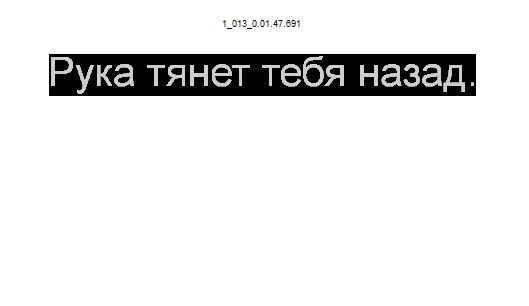
After that the hardest of all is the listening practice. I do keep the context image for listening, since a lot of the listening I will do will be watching TV or Movie, but I could theoretically add a harder listening practice card without a context image if I wanted.
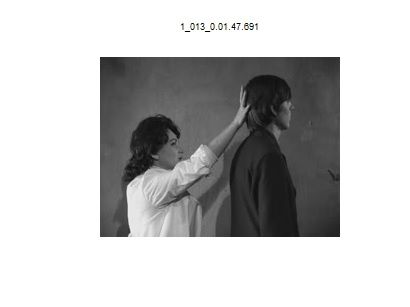
And of course at the end all the answers look basically the same, and I get the translation and any other information that was hidden in the first card. So each of these increase in difficulty with each new card, but each one helps me learn the other ones better since its the same content studied in a different way.

This next example is from Gabriel Wyner's Hungarian deck which I'm using. His idea for pronunciation training cards to improve his ability to hear new sounds inspired me to be a lot more creative with my cards.
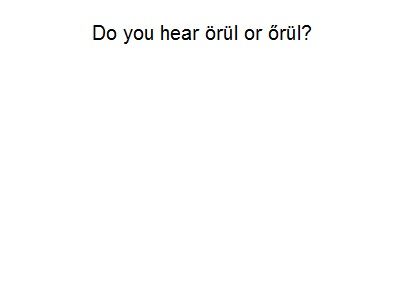
Of course there's audio on these cards which isn't conveyed as well with screen shots. And a duplicate card which asks the same question but asks the opposing audio file. This is what the answer card looks like, and it contains both audio files so I can compare the sounds if I got it wrong.
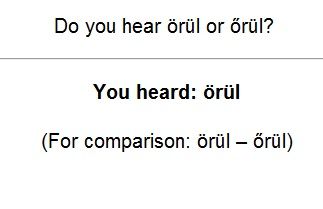
I've taken the same principle and applied them to my Cantonese studies to learn radicals. Basically I had read about how radicals work before, but they never really stuck with me, and I constantly got these characters mixed up when studying them separately. By creating these radical card quizzes I was able to greatly sped up my ability to differentiate these Chinese characters. And of course I have all these characters in compound word and sentence cards as well, so each card quizzes me on subtly different aspects, and I never feel like I'm cramming to memorize information.

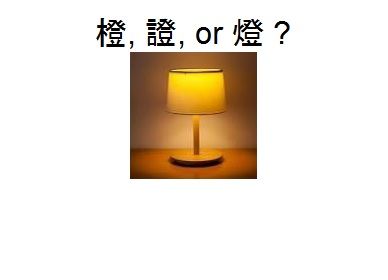
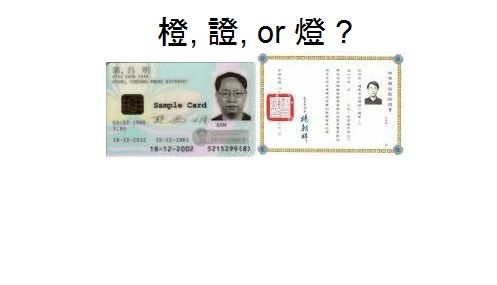
Edited by YnEoS on 30 August 2014 at 5:36am
9 persons have voted this message useful
|















